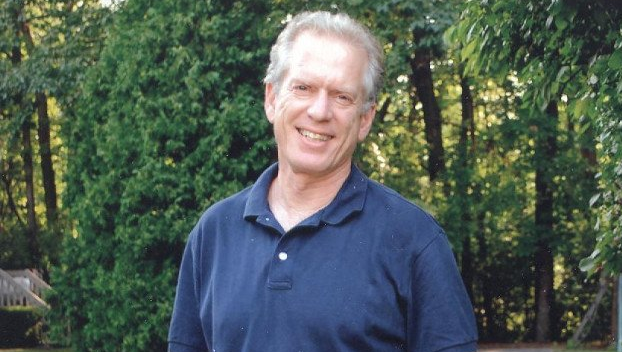A conversation with Dr. Oscar Prieto-Flores: Mentoring in Spain and Europe
 By Vera van den Berg and Jelle de Graaf
By Vera van den Berg and Jelle de Graaf
Dr. Òscar Prieto-Flores is an Associate Professor of Sociology at the University of Girona. He is also a member of the research group in social mentoring. Dr. Prieto-Flores will be visiting the Center for Evidence-based Mentoring in Boston, Massachusetts from March until June of 2017 to broaden his knowledge about mentoring research.
How did you get involved in the mentoring field?
Dr. Prieto-Flores (PF): It all started with the Nightingale mentoring program which began in 1997 at Malmö university in Sweden and was introduced in Girona in 2006. This project aims to match college students to high school students who newly arrived in Spain for a period of 9 months. At present time 22 Universities are involved in the Nightingale project and 125 matches are made each year at the University of Girona (and more than a thousand overall).
I got involved within the Nightingale mentoring network by my friend and colleague Jordi Feu. It was clear this program was having an effect on mentors and mentees. The benefits were visible on both sides. In the year 2007 we started to discussing the ethics of the program, which factors contribute positively to the relationship between a mentor and mentee, with other researchers in social mentoring which resulted in a collaboration.
What research project are you working on at the moment?
PF: Currently we are working on a longitudinal follow up research on the effects the Nightingale mentoring program had on the mentees four years after they participated in the program (2012-2016). Together with professor Jordi Feu we are looking at the effects mentors had on their mentees and how they endure after four years. We conducted qualitative interviews with mentees about why and how mentors are salient in becoming significant others influencing mentees in persisting in their expectations and trajectories. The outcomes are significant for the mentees because these mentees show less declining in educational and occupational expectations. Besides that, we are gaining new insights into how mentors can be selected, trained and matched with mentees, but ensuring the quality of the relationship is the most relevant topic for us right now.
Is there anything you could already tell us about the outcomes of your research?
PF: We see that the outcomes of mentoring programs vary a lot. Some programs have a lot of impact and some less. We are also observing that within one mentoring program outcomes may also vary. For example, we can observe that only for some programs, one third of the mentees identified their mentors as one of the three most significant adults. We have conducted research in exploring how and why these mentors become so significant. Thus we can collaborate with practitioners and reorient mentor training for future editions and improve mentoring program effectiveness. Mentoring programs for immigrant children seem to have a big impact of their future trajectories especially when mentors become significant others for the mentees.
How so?
PF: At the present time the migration flow is very high in Girona. The first generation children suffer the most as they have to immerse themselves into a new context with working parents, different culture and adapt in a foreign language, which in this case is Catalan. They need a caring adult to adjust in this new environment and learn how to navigate.
The language we use in Girona is Catalan. Through community-based mentoring they learn to speak Catalan by their mentors in informal ways because they only identify Catalan as the language of instruction at schools. We see that those who had a mentor get more self-confidence in speaking, as well as in making new friends of networks they did not have before. They also connect more with school language and the children behave more positively in class and, as a result of that, get better grades. Their educational expectations significantly grow when an immigrant child has had a mentor.
What effects have you seen on the mentor-side?
PF: We see that college students who became mentors of immigrant mentees develop more their intercultural competences after participating in the program. They understand migrant families better, empathize with them by seeing and sometimes being involved in the problems they may be facing. They need to develop openness in many situations and adjust to a different culture.
You mentioned doing follow up research on mentees. Have you considered doing follow up research with mentors?
PF: We did not do a follow up on mentors yet. It could be a good research to conduct in the future, as it would be interesting to see what impact endures after the years pass on the mentor-side.
What are the key factors of effective mentoring?
PF: In my opinion training that is connected to research is essential to effective mentoring. We need to train mentors on an evidence-based level. In order to do so, we need more evidence to feed these trainings.
Another key factor is to involve parents or community members in the mentoring program. They should be informed and included. In that way the relationship between the mentor and the mentee can grow.
Finally, mentoring should be more relational. One person can make a difference, can act as institutional agent but it’s not for the mentor to ‘save a life’. The mentor is a connector and needs to connect the needs of the mentee to society/organizations/institutions and so on.
Could you give us an example of that?
PF: I could give you many examples, but one that is coming to mind now is the story of a girl. Thinking back about her mentor, she has good memories about that time. She was having difficulties in school and didn’t know what she wanted. What she did know was that she had an interest in working with children. Her mentor taught her how her interest in children could be put into her future working field. Her mentor started talking to her teachers in high school, about her passion for children and her future goals. Teachers started to see this girl differently and were more supportive in helping her to achieve her future goals.
Would you like to share an article or literature with us that has been inspirational during your work within mentoring and can you tell us why this has been inspirational?
PF: I really like a book from Paulo Freire called “Pedagogy of the Oppressed” and the following manuscript: Stanton-Salazar, R. D. (2011). A social capital framework for the study of institutional agents and of the empowerment of low-status youth. Youth & Society 43 (3), 1066-1109.
One of the questions I always have in mind as sociologist is the existing connections between human development and structural inequalities and how they take place in youth mentoring. By reading Stanton-Salazar, I could understand these interconnected worlds better and it helped me to deepen my view as a sociologist doing research in the field of youth mentoring. These connections are also present in other relevant academic works such as Paulo Freire’s Pedagogy of the Oppressed.
Thank you for sharing all this with us. Finally we would like to ask you a question about the European Center. As you know, the Center was launched last March during the European Mentoring Summit. What do you expect from the Center and the collaboration of the Center for Evidence-Based Mentoring in Boston, Massachusetts and the European Center for Evidence-Based Mentoring?
PF: I am always very optimistic. In Europe the mentoring field is upcoming while it is much more institutionally developed and immersed in the American culture. As a researcher I hope we can exchange knowledge through meetings and conferences to know deeper on how do we mentor in Europe. Furthermore, I hope we can give each other advice as companions and colleagues.
Lastly, I hope the European Center will create a network of scholars in the field of Mentoring. Not only do I hope that the European Center can keep professors and scholars connected, I hope we can collaborate with practitioners in creating a database for all of the mentoring programs set out in Europe. Mentoring programs have grown specially over the past ten years in Europe, but we don’t know exactly how many programs there are and how mentoring programs are contributing to Europe 2020 targets.
These networks will also contribute to the quality of research we do as well as to the practical side of mentoring by creating a shared and learning space between scholars and practitioners.
This interview was originally posted by the European Center for Evidence-Based Mentoring. Click here to sign up for their newsletter to keep on top of the latest mentoring news out of Europe!










